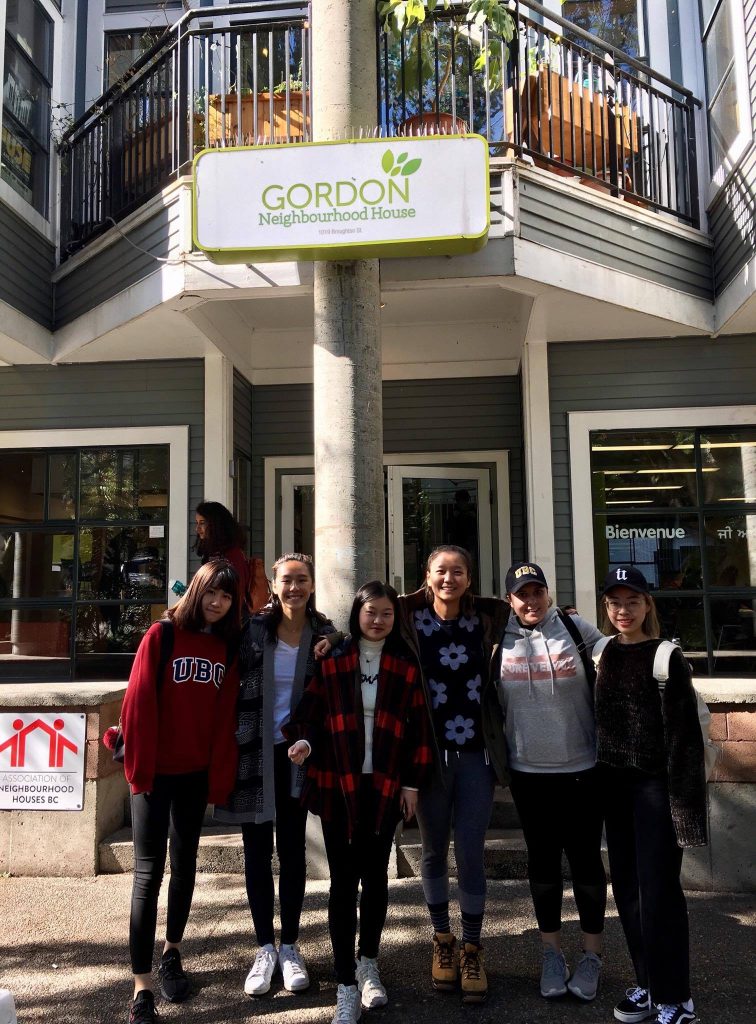Have you ever had to compromise a healthy option for a more affordable one?
As six university students who study about food, nutrition, and health, we can sympathize with those who have to save every nickel to eat a nutritious meal.
Welcome to our blog!
This is us!

From left to right we have Mengxi Li, Ariane Lai, Jiahui (Candy) Xiong, Jin-sun Cho, Amanda Augustyn, and Alice Luo. All of us are currently starting our third-year at the University of British Columbia. Interestingly, most of us, Jin-sun, Alice, Ariane, and Amanda, are studying Food, Nutrition, and Health. Mengxi is majoring in Food Market Analysis and Candy is in Nutritional Sciences. Obviously, our interests include food and the functionality it has on our bodies, communities, and lives since our faculty is majorly food based. However, we also have plenty other interests like rollerblading, volleyball, volunteering and cooking.
As we mentioned before, sparingly spending while maintaining a healthy lifestyle is something we consider on a daily basis as Land and Food Systems students. When we are busy or short on spending money, making the right decisions while eating can be difficult. When the opportunity to work with the Gordon Neighbourhood House (GNH) was presented to us, we all wanted to be a part of it. The reason was that we wanted to see if someone with a lower income or mobility issues could achieve a low-cost but well-balanced diet in their communities. While working with GNH, we hope we can meet the various people in the West Vancouver area and be exposed to the different ways that GNH is used for helping their community achieve community food security, which is defined as “a situation in which all community residents obtain a safe, culturally acceptable, nutritionally adequate diet through a sustainable food system that maximizes self-reliance and social justice” (Hamm et al., 2003). Fortunately, working with GNH will also allow us to gain hands-on experience with assessing nutrition in the community and applying what we actually learn in the classroom to a real-life situation.
Now, the question is what are we actually doing with GNH and what is GNH all about? The objective of our project is to experience planning, preparing, and serving healthy-low-cost meals to the guests that visit GNH. Then, we will provide a nutritional assessment of their recipes and articulate our ideas on how to improve or enhance their recipes so that they are optimally healthy and low-cost. GNH presents a clear food philosophy and has specific ideas about how they see and treat their guests, which is to use food as a way to nourish their community. This does not mean just literally nourishing their guests but to also nourish them with intercultural exchange and dialogue, community-capacity building, and community development (Gordon Neighbourhood House, 2017). We were also strongly advised to not patronize the guests or be paternalistic towards them because we are not there to “baby” the residents or think that we are above them (Sirolli, 2012). In addition, we are not there to make unnecessary major changes but to simply reinforce the recipes GNH already has to offer (Sirolli, 2012). We hope to build on the assets and traditions already established at GNH in a respectful manner so that we can make community members feel safe and unembarrassed, which is also one of our objectives in the project.
What we first observed about GNH is that it is community-based. This means the available resources in the area and the community’s traditions will determine what types of programs and events are available. This is important because using their assets will help develop a more inclusive and stronger connection with the community. As mentioned, GNH differs from other neighbourhood houses in that they focus on food. Many of their programs revolve around food. For example, GNH has a bike-powered market called Gordon Greens, which increases access to affordable and nutritious produce for the community, particularly those who have difficulties with mobility. We also noted that our misconceptions of West Vancouver, being an extremely wealthy area with no food insecurity, were wrong. West Vancouver, like many other communities, is also inhabited with people struggling to find a comfortable place to eat. GNH is providing more than just a meal, it is providing residents with a social opportunity and the food justice they rightfully deserve. What we hope to do is to become part of that community as well, learn from the residents in the area, provide our assets, and gather passions from the community to help the community grow stronger.
References:
Hamm, M. and Bellows, A. (2003). Community Food Security and NutriBon Educators. Journal Of NutriBon EducaBon and Behaviour, Volume 35, Issue 1, Pages 37-43.
Gordon Neighbourhood House. (2017). Food Philosophy- GordonHouse.org. RetrievedSeptember 21, 2017, from http://gordonhouse.org/about-gordon-neighbourhood-house/right-to-food/
Sirolli, E. (2012, August). Want to Help Someone? Shut Up and Listen! Retrieved from https://www.ted.com/talks/ernesto_sirolli_want_to_help_someone_shut_up_and_listen#t-5461
Hi, this is a comment.
To get started with moderating, editing, and deleting comments, please visit the Comments screen in the dashboard.
Commenter avatars come from Gravatar.